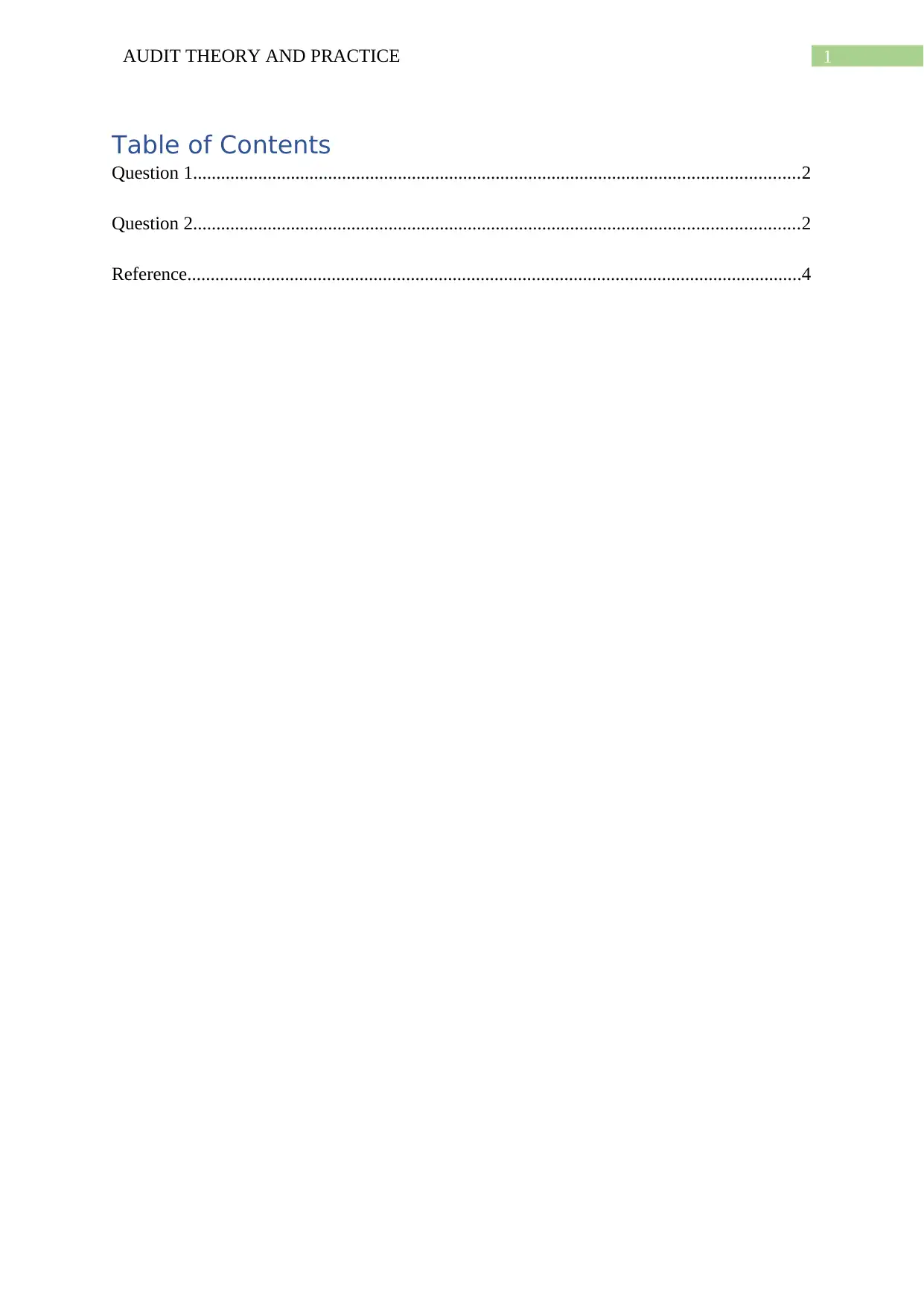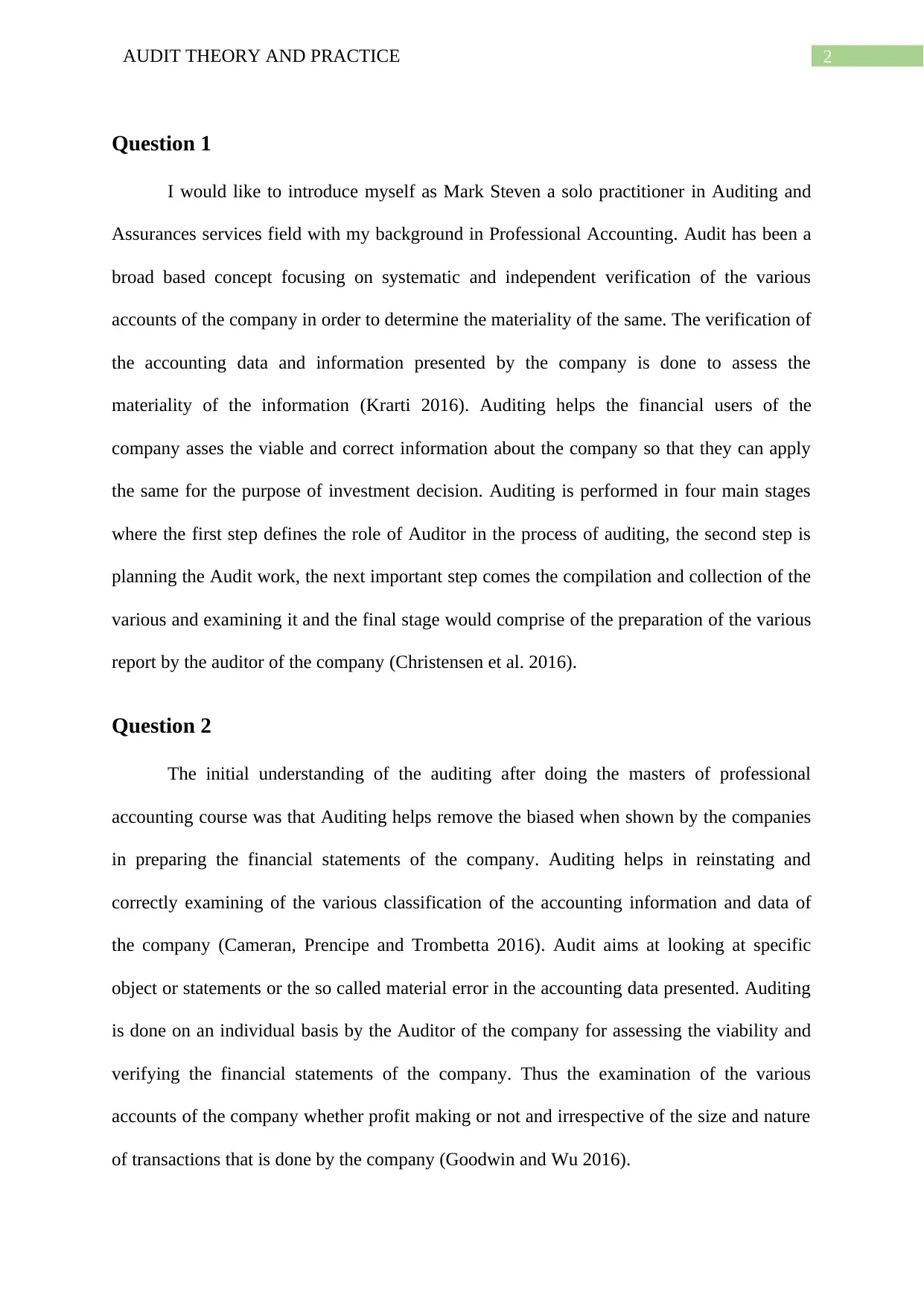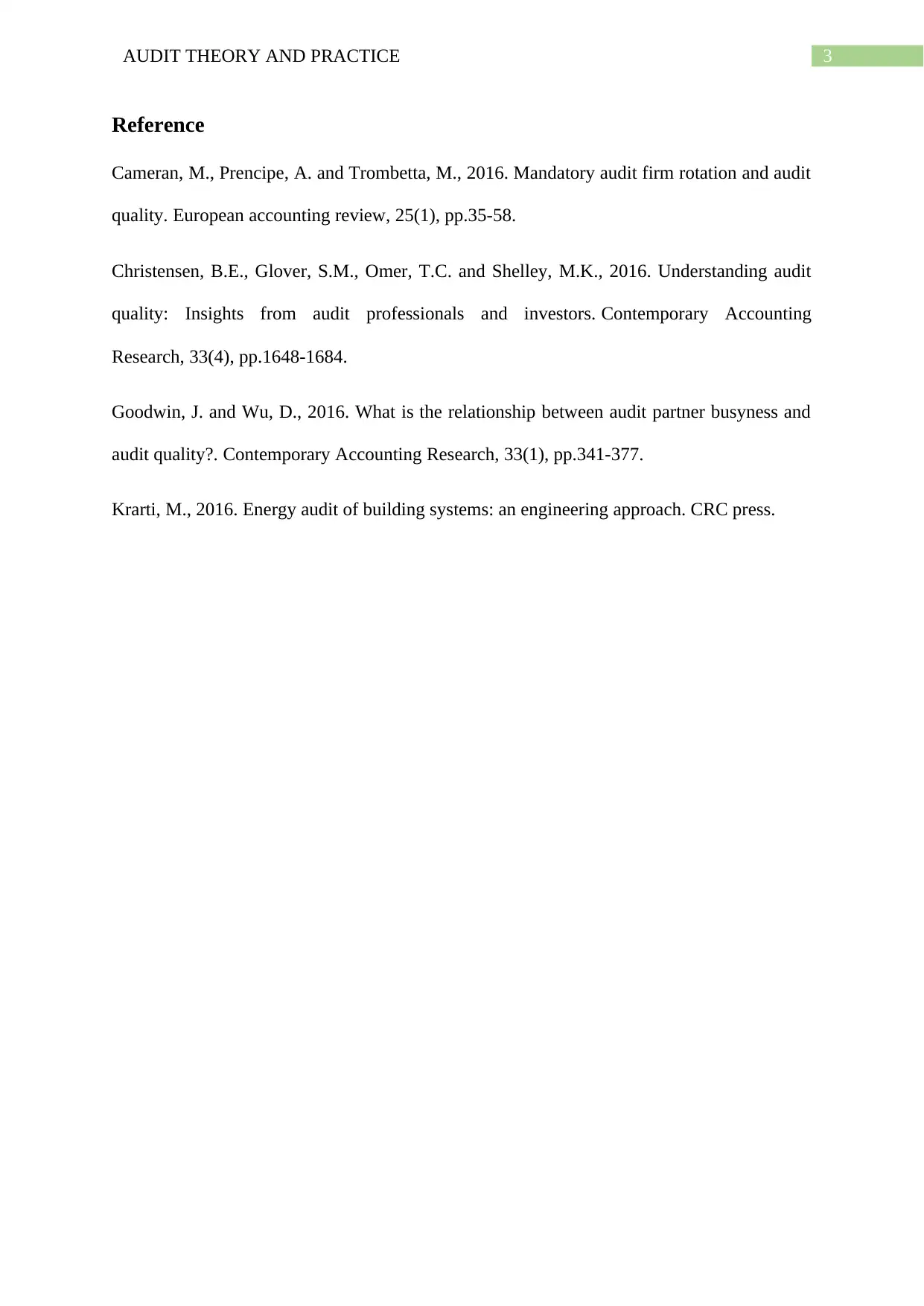Auditing Report: Analysis of Financial Statements and Procedures
VerifiedAdded on 2023/04/21
|4
|514
|156
Report
AI Summary
This report, titled 'Auditing Report', begins with an introduction to the field of auditing, emphasizing its role in ensuring the accuracy and reliability of financial statements. It highlights the importance of the auditor in verifying accounting data and assessing the materiality of information for users, such as investors. The report outlines the four key stages of the auditing process: defining the auditor's role, planning the audit, compiling and examining data, and preparing the final report. Furthermore, the report discusses the author's initial understanding of auditing, gained from a Master's in Professional Accounting, emphasizing its role in removing bias and verifying the classification of accounting information. It stresses that auditing focuses on specific, material errors in accounting data and is conducted on an individual basis to assess the viability of financial statements, irrespective of the company's size or transaction nature.
1 out of 4






![[object Object]](/_next/static/media/star-bottom.7253800d.svg)